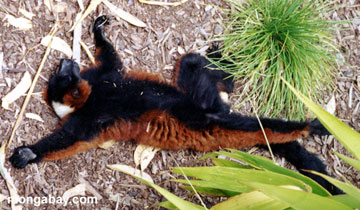The illegal wildlife trade generates $5 to $20 billion annually, making it the largest illicit market after guns and drugs trafficking, reports a study released by the Congressional Research Service.
The report, released at a hearing by the House Natural Resources Committee chaired by Congressman Nick Rahall, warns that the illegal wildlife trade “poses a variety of threats to the U.S. and around the world, ranging from loss of endangered wildlife to introduction of life-threatening diseases,” according to a statement from the Wildlife Conservation Society, a group that provided scientific background on the issue.
“Controlling illegal wildlife trade is a key component in the spread of zoonotic diseases,” said Dr. William Karesh of the Wildlife Conservation Society. “We commend Congressman Nick Rahall and the other Members of the Natural Resources Committee for this important work in shedding light on this major issue, as well as U.S. State Department Assistant Secretary Claudia McMurray who recently established the Coalition Against Wildlife Trafficking.”
 |
“In addition to the threat to endangered species, wildlife trafficking poses threats to our nation’s security and health by spreading disease. For example, avian influenza, SARS, and Ebola can jump from animals to humans and endanger public health. When wildlife is bought and sold illegally, those diseases can spread farther and faster among humans,” said Claudia McMurray, Assistant Secretary of State for Oceans, Environment and Science.
“One of the frightening aspects of the illegal trade in wildlife is the danger of spreading potentially fatal diseases around the world,” added Dr. Elizabeth Bennett of WCS’s Hunting and Wildlife Trade Program on the international trafficking of illegal wildlife. “Much of the international wildlife trade is illegal, by-passing health and safety regulations, thereby putting the public at considerable risk of diseases. Thorough review and effective implementation of wildlife and health laws along the trade chain from source to consumer would help to rectify these problems.”
The report recommends “imposing trade sanctions on countries with weak wildlife trafficking laws; strengthening funding for domestic wildlife inspectors at the borders; and working with the private sector to improve regulation of the wildlife trade.”